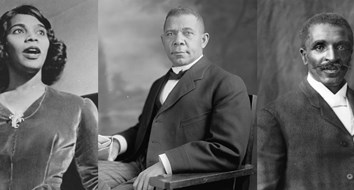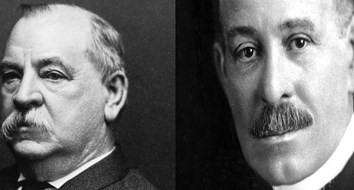Download:
For hard-pressed, taxpaying citizens who believe in limited government, April is not a favorite month. But something really good and worth noting happened a couple days before our taxes were due this year. On April 13 in Michigan, a Democratic governor chided a Republican legislature for trying to create a state “manufacturing czar.”
In fact, this year Governor Jennifer Granholm vetoed two bills passed by a GOP-controlled legislature that would have created two different czars, one for small business and one for manufacturing. She argued that we didn’t need a state manufacturing czar because the state already has its Michigan Economic Development Corporation and a Department of Labor and Economic Growth, which both have their own monarchs, or whatever their leaders are called.
It isn’t as though Granholm opposes czars. She had earlier called on President Bush to name a manufacturing czar (or czarina) at the federal level. Back home in Michigan, it’s not as though we don’t know why our state is losing manufacturing jobs. High taxes, burdensome regulations, poor inner-city schools, and a generally unfriendly, union-heavy labor environment are major factors. To genuinely fix the problem, the governor and legislature have been handed dozens of proposals by my organization and others, including abolishing compulsory unionism, ending corporate welfare, cutting taxes and spending, and privatizing things the state shouldn’t be doing. But instead of exhibiting real leadership and getting those things done, the politicians too often would rather hire yet another leader, a “czar” no less.
In the land of the free, czardom has become a bipartisan fetish. Both major political parties have given us drug czars, energy czars, trade czars, AIDS czars, counterterrorism czars, and more, and they seem intent on blessing us with more such coronations in the future. We now even have a federal “privacy czar,” for crying out loud! The politicians give us tough talk about getting some problem resolved, but when they anoint a czar to deal with it, it’s usually because they don’t know what should be done or they’re afraid to accept responsibility themselves.
The media not only lap it up, but they dish out more of their own—often conferring the “czar” title on officials whom even the government isn’t brash enough to label that way. While browsing the Internet, I came across an article from the January 20 Berkeley Daily Planet with a headline that caught my eye: “Bush Homeless Czar Pays a Visit.” It wasn’t about a government official without a home. It was about the President’s homelessness czar, in town to promote “the development of 10-year plans to end chronic homelessness.” Other stories I found referred to a “timber czar,” a “cyber-security czar,” a “health care czar,” and a “regulatory czar,” to cite but a few examples.
My problem with all of this goes beyond the notion of hiring yet another bureaucrat. It’s the use of the term “czar” itself to refer to anybody at all in what is supposed to be a free society. Jefferson, Madison, Franklin, and the others who risked their lives to fashion a constitutional republic must be turning in their graves. Just as George Washington rejected a suggestion he be named a king, so should any self-respecting, freedom-loving American citizen eschew any offer to be a “czar” over anything or anybody.
In his book Freedom in Chains: The Rise of the State and the Demise of the Citizen, James Bovard laments what this czarist fetish says about the state of American thinking: “Americans of earlier generations would be as shocked by the current adulatory use of the term ‘czar’ as contemporary Americans should be shocked of the use of ‘fuehrer’ as a compliment for a political leader.” Bovard cites an attorney who, in an 1895 case, condemned a particular tax as granting sweeping powers to the federal government “worthy of a Czar of Russia proposing to reign with undisputed and absolute power. . . .”
Czar, as in Caesar
The origin of the word is “Caesar” from the ancient Roman autocrat Julius Caesar, who arrogated great power to himself and helped bring an end to the Roman republic. Later emperors embraced his name as their title; to be a “Caesar” was to possess almost limitless, life-and-death authority over the rest of society. In more modern times we think of a “czar” as a tyrant of pre-1917 Russia. Look it up in any thesaurus and you’ll find synonyms such as “usurper,” “despot” and “oppressor.” Words say a lot about a culture. Americans of 1900 never referred to one of their own as a “czar” because they understood the term. Because they generally embraced liberty and limited government, they knew that it was pejorative. No respectable American of that day would have accepted the title, and no job at any level of government at that time even pretended to bestow czarist-like authority. Americans of today haven’t forgotten what the term means. Sadly, they simply put far more faith in powerful, centralized government than did their ancestors. Their acceptance of the term “czar” is symptomatic of the same shift in thinking that has given us a government that commands a share of our lives and personal income many times what it claimed in 1900.
One hopeful sign of the prospects for liberty would be a widespread revulsion at the very thought of a fellow citizen possessing either a position or a title such as the one we’re discussing here. Let’s pray for the day when Americans tell their leaders in no uncertain terms: “Give us no more czars! Give us no pharaohs, emperors, shoguns, sheikhs, sachems, commissars, or potentates of any kind! Just give us good and limited government, and leave the rest to us!”





